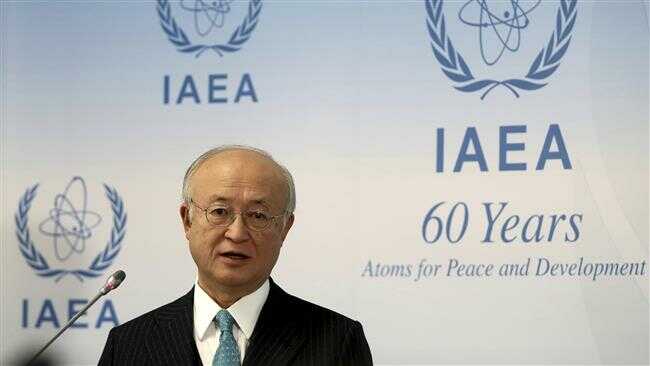Nigerian Nuclear Regulatory Authority Confronts Nuclear Energy Paradox
By Adagbo ONOJA

Experts taking charge in the aftermath of the 2011 Fukushima Nuclear Plant diasater in Japan: Nuclear energy gets much of its image from accidents of this nature
Nuclear energy is a paradox in that its many benefits are overshadowed by the baggage of the nuclear bomb. The destructiveness of the bomb makes risk and safety to come up as crucial issues in all discussions of nuclear energy. People are not only uncomfortable with nuclear plant technology, for instance, they also worry about who is accessing and utilising nuclear materials. There is thus a paradox about nuclear energy that puts a typical national regulatory agency on the tight spot in terms of promoting a better or more nuanced representation of nuclear energy. For, there are thousand ways in which life is near impossible without nuclear energy, from civil to domestic, from health to the environment, from agricultural/food to the industrial. There is no debate about these diverse benefits but the informed appreciation of which is only possible if and when the image of nuclear energy shifts from the fearful and negative to the more positive sense of it.
Within the above context, a media-nuclear energy nexus exists and becomes totally central to the work of a national nuclear regulatory agency, given the emergence of the mass media as the ultimate controller of words and narratives in the world today, over and above religion, the school system and the family. Nigeria’s demographic and territorial vastness has made the mobilisation of nuclear energy consciousness crucial in the struggle to move out of under development. Worth raising is how far this has been part of the consciousness of the Nigerian Nuclear Regulatory Authority in any critical sense. That is critical not as in criticising but as in taking it contextually or historically, if you like.

Prof Lawrence Dim, DG of NNRA waiting to take his turn for a handshake with President Buhari on arrival in Washington for the 2016 Nuclear Security Summit

Interestingly, the answer to the poser is positive even if only for the fact that its February 18th, 2017 engagement with the media was the fourth in the series, according to the communiqué from the interaction. What that means is that the agency has been in conversation with select health, science, technology, climate change and energy correspondents over the years. This is not only in conformity with the institutional mandate for it to provide training, information and guidance, it is also its own sense of the media space.
The vehemence with which people call what they read or heard from the media to support their argument has forced them to the conclusion that what the media says and how they say it must be part of the nuclear regulatory work. “I read it in so, so newspaper. It is true” is a common appeal to the authority of the media in everyday or street debates. Fortunately and unfortunately, it is at this level that the uses and misuses of or escapism from nuclear energy come up. How many people can identify a radiation type or sign? How many people are aware that nuclear energy can be used to protect food by removing bacteria and other opportunistic vectors? How many people are aware that longevity of food before it reaches the table can be a function of nuclear energy?
All these point at the tremendous scope for peaceful or developmental uses of nuclear energy, thereby posing a challenge: when a specialist uses the term ‘radioactive materials’, is it possible for the media to report it exactly in the sense or context in which it was used so that nobody starts panicking or avoiding certain products or areas or practices out of fear and ignorance?

In all cases, the concern of the authority is the handling of reporting of this realm at par with the best in the world because the agency’s task places it between Nigeria and the international community rather than a local affair. So, without being promotional or getting into self-writing, it must mediatise on improving safety, educating people to avoid unnecessary response to radiation, for instance, keeping society informed about safety standards, conveying the message over and over again that the domain of the nuclear is not only about nuclear arms and destruction as well as learn from society about their own concerns.
The communiqué did not indicate what the cumulative impact of the engagement with the media over the past few years has been but in a world in which meaning of any and everything is contested, there may be no better option than sustaining a robust engagement with the story tellers. As the agency itself aptly noted, “This is important if they are to professionally report and support the substance of the nuclear safety infrastructure and culture and also provide appropriate information to members of the public”.




























